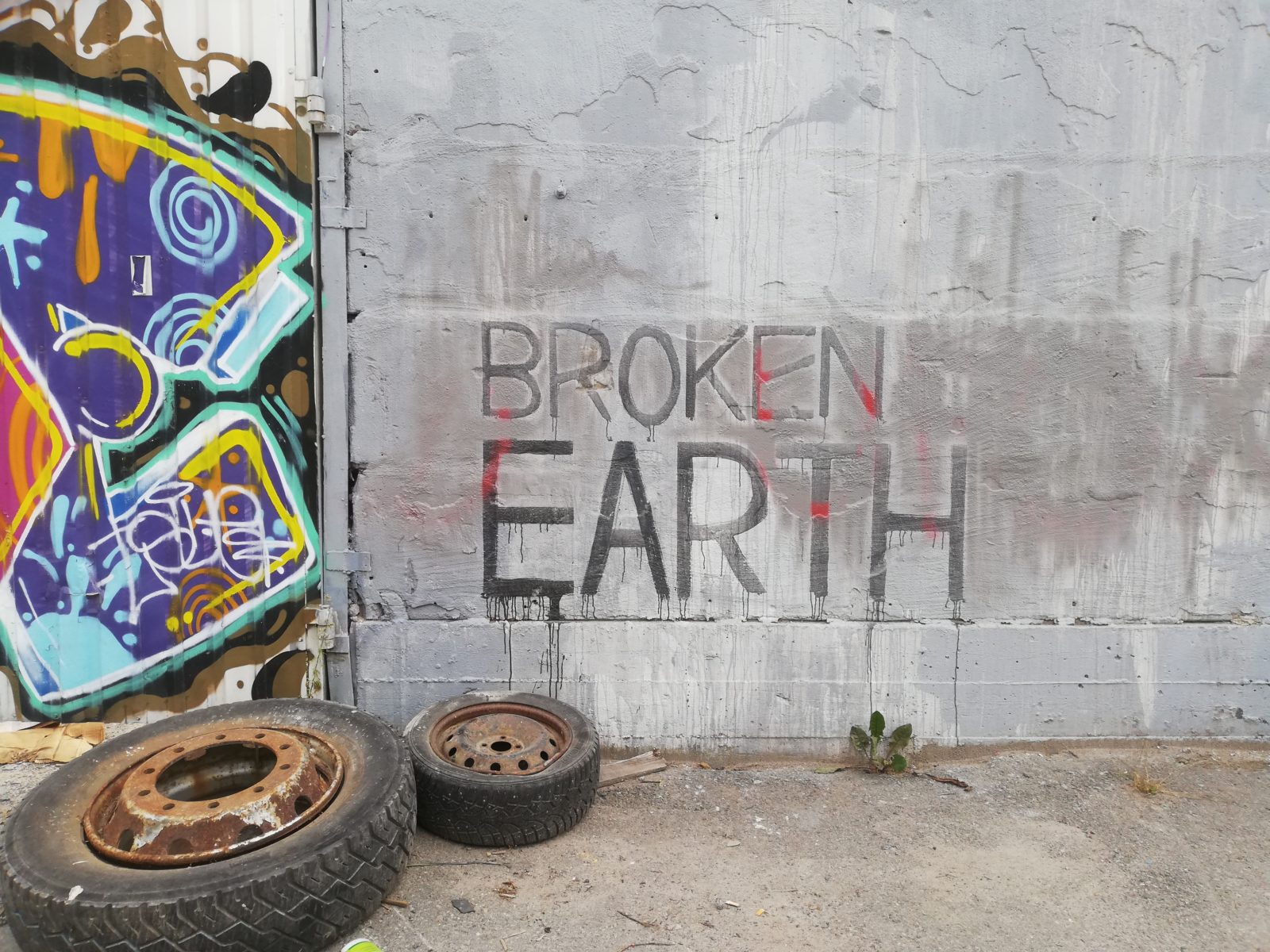KTH Environmental Humanities Laboratory, Stockholm 2012–
Technology, environment and the politics of green transitions in the Anthropocene
The KTH Environmental Humanities Laboratory (EHL) is a center dedicated to higher education, co-research and outreach activities based at the KTH Royal Institute of Technology in Stockholm. The work at the EHL is focused on understanding the changing human-Earth relation of the Anthropocene combining emerging research lines on technology, media and political ecology with activism and learning on the front lines of environmental policy and green transitions.
Read More
A graffiti in Stockholm. Photo by Marco Armiero © all rights reserved
- project
Mediated Planet: Claiming Data for Environmental SDGs
A research project run by the KTH Division of History of Science, Technology and Environment from 2021-2025 exploring the global environment as emerging through environmental data.
Modeling, Case Study, Media, Human-environment relations, Policy, Ecology
- project
SPHERE. Study of the Planetary Human-Environment Relationship
The historical research project SPHERE focuses on one of the most comprehensive and complex governance issues in the contemporary world: humanity’s relation to planetary conditions and constraints.
Modeling, Monitoring, Human-environment relations, Ecology, Knowledge production, Complexity, Governance
- Case StudyJohan Gärdebo, Adam Wickberg
Environing Media and the Anthropocene
Charts and maps shape our understanding of the world but beyond this, how do data and representations actively form environments?
Sensing, History, Media
- projectEtienne Benson, Johan Gärdebo, Sabine Höhler, Karena Kalmbach, Nina Wormbs
Environing Technology
Untangling processes of environmental change and extreme environments mediated by and through technology.
Teaching, Reflection, Human-environment relations, Biosphere, Technoscience, Infrastructure
- projectGesa Geißler, Sabine Höhler, Natalie Jeremijenko, Adrian Lahoud, Herbert Lohner, Ioan Negrutiu, Jean-Louis Weber
Seminar: Valuing Nature
The overexploitation of natural capital will lead to profound and unanticipated social and environmental changes, if we do not learn to “value nature”. But is the equivalence of natural and financial capital adequate? How can we identify the threshold between what can and cannot be subjected to market rules?
Naturecultures, Economy, Extraction
- contributionJohan Gärdebo, Agata Marzecova, Hanna Vikström
Orbital Geopolitics
A conceptualization of the human‒nature‒technology nexus needs to examine the uneven geographies and power geometries of the Anthropocene epoch. Satellites are a case in point.
Sensing, Complexity, Evolution, History, Scale, Waste, Speculative
- contributionAdam Wickberg
Anthropogenic Markers as Environing Media
Media scholar Adam Wickberg outlines how knowledge about the environment and media technologies have always evolved in tandem; the history of anthropogenic markers can therefore be understood as a process of environing media.
Monitoring, Data, Computation, Epistemology, Ecology, Human-environment relations, Scale, Technosphere
- contributionSabine Höhler
Ecospheres: Model and Laboratory for Earth's Environment
Historian of science Sabine Höhler explores the technoscientific motives and consequences of experimenting with self-contained ecospheres.
Mapping, Engagement, Ecology, Life, Technoscience, Biosphere

